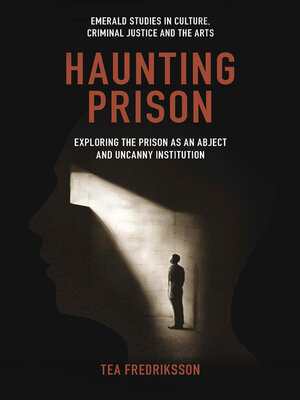Haunting Prison
ebook ∣ Exploring the Prison as an Abject and Uncanny Institution · Emerald Studies in Culture, Criminal Justice and the Arts
By Tea Fredriksson

Sign up to save your library
With an OverDrive account, you can save your favorite libraries for at-a-glance information about availability. Find out more about OverDrive accounts.
Find this title in Libby, the library reading app by OverDrive.



Search for a digital library with this title
Title found at these libraries:
| Library Name | Distance |
|---|---|
| Loading... |
Through a study of ten commercially published prison autobiographies, Haunting Prison: Exploring the Prison as an Abject and Uncanny Institution unveils how prison is narrativized and socially represented as an abject and uncanny institution, shedding new light on what prison is and does in Western carceral imaginations.
Unveiling the layers of editing that position prison autobiographies between fact and fiction, Tea Fredriksson delves into how true crime's claims to factuality coexist with the genre's inescapable horror iconography. In a thematic analysis of how autobiographical prison stories make prison 'come alive' on the page as a site of abject horror and eerie unsettlement, Haunting Prison: Exploring the Prison as an Abject and Uncanny Institution explores how prison functions as a storied institution, both as a physical site of subterranean horrors and in terms of the many-layered stories told about prison and the bodies within it. Showcasing how prison expresses and distills the normative social anxieties of the global North-West and linking othering processes and unsettling likenesses as common narrational themes, Fredriksson reveals how prison is both an abject other to and a haunting, uncanny double of the outside world.
A refreshing take on the study of true crime data, Haunting Prison: Exploring the Prison as an Abject and Uncanny Institution is appealing reading for scholars interested in qualitative research methods for studying crime, punishment and victimhood in popular culture.
This series has been renamed to "Emerald Studies in Culture, Crime, Criminal Justice and the Arts" effective for 2025 publications onward.






